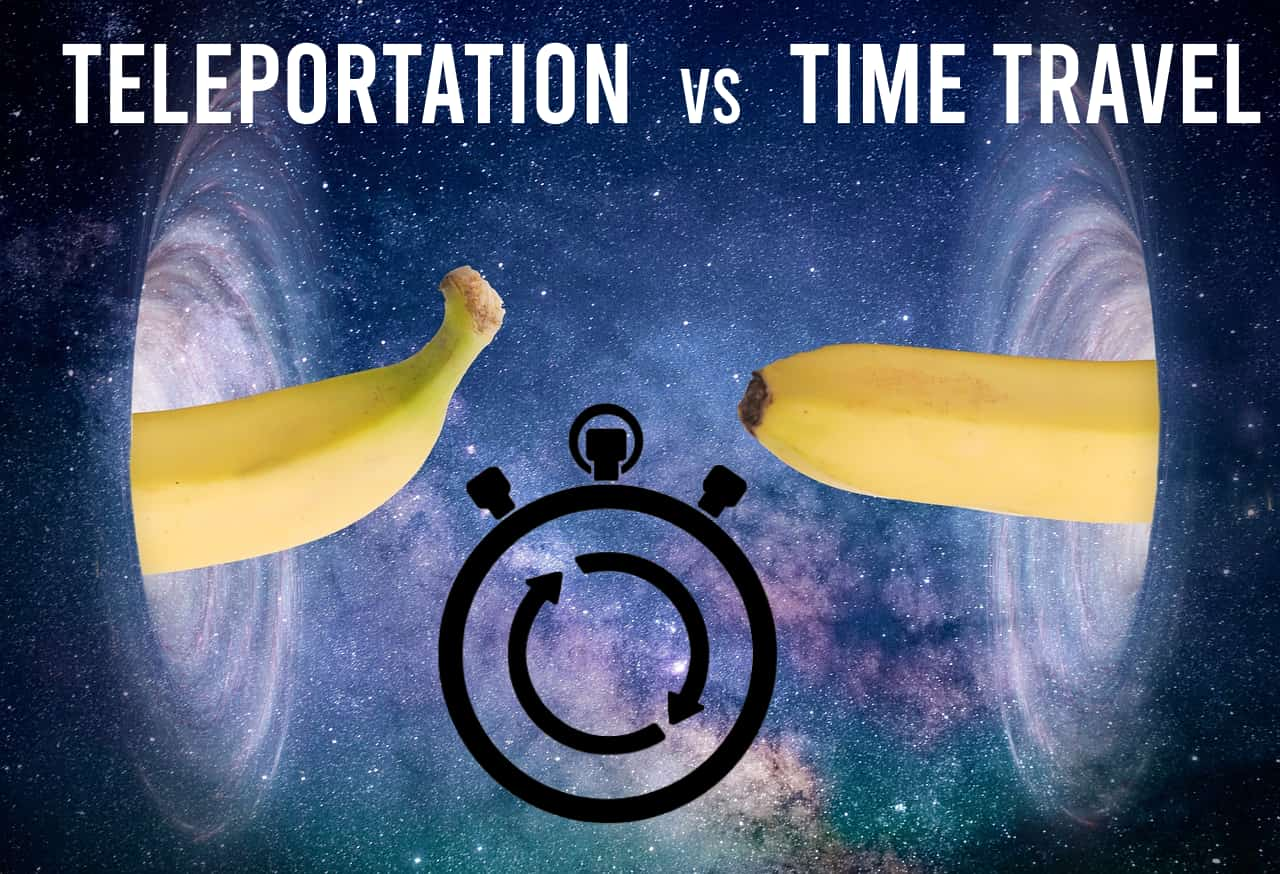Time travel and teleportation have captured the imagination of science fiction enthusiasts and researchers alike for decades. They offer tantalizing possibilities for exploration, communication, and adventure. In this article, we’ll delve into the fascinating world of time travel and teleportation, comparing their scientific foundations and real-world implications. Along the way, we’ll explore the latest advancements and theories in these fields, and see how they relate to the principles of Einstein’s Theory of Relativity and Quantum Teleportation.
1. Time Travel: Rewinding or Fast-Forwarding the Clock
Time travel, in its simplest form, involves the ability to move backward or forward through time, either by altering the rate at which time passes or by moving through time itself. The concept has a rich history in literature, from H.G. Wells’ The Time Machine to the beloved Back to the Future film franchise.
A. The Scientific Basis
The possibility of time travel is rooted in Einstein’s Theory of Relativity, which describes the relationship between space and time. This theory, along with the concept of wormholes – shortcuts through spacetime – have inspired scientists to consider the feasibility of time travel.
B. Advancements and Challenges
Despite its theoretical underpinnings, time travel still faces numerous scientific and practical challenges. For example, the Grandfather Paradox raises questions about the implications of altering the past. Furthermore, no experimental evidence of time travel has been found thus far, and the energy requirements for creating a stable wormhole remain insurmountable.
2. Teleportation: Instantly Jumping Across Space
Teleportation, on the other hand, is the transfer of matter from one point in space to another without traversing the physical distance between them. It’s a concept that has been popularized in science fiction, like the iconic Star Trek series.
A. The Scientific Basis
While teleportation may seem like pure fantasy, it has a basis in Quantum Mechanics. In recent years, scientists have demonstrated Quantum Teleportation, which involves the transfer of information about the quantum state of a particle from one location to another.
B. Advancements and Challenges
Quantum teleportation experiments have successfully transmitted information over significant distances, but the process is far from the seamless transportation of matter depicted in popular culture. The major challenge lies in scaling up quantum teleportation to larger systems, such as living organisms or entire vehicles.
3. Comparing Time Travel and Teleportation
Time travel and teleportation share a common foundation in theoretical physics, but they differ in their real-world implications and progress:
- Feasibility: While both concepts are grounded in scientific theories, teleportation has seen more experimental success than time travel, with the latter still largely confined to the realm of speculation.
- Ethical considerations: Time travel raises complex questions about the consequences of altering the past, while teleportation mainly poses challenges related to privacy and security.
- Practical applications: Teleportation offers potential benefits for transportation, communication, and technology, whereas the practical applications of time travel are more uncertain and potentially fraught with danger.
4. The Future of Time Travel and Teleportation
As science continues to advance, it’s possible that our understanding of time travel and teleportation will grow, opening new doors for exploration and discovery. Researchers around the world are working tirelessly to unravel the mysteries of these phenomena, and it’s an exciting time to be following their progress.
- Time Travel: Future developments in theoretical physics may shed more light on the true nature of time and the possibilities of time travel. Advances in our understanding of wormholes or the discovery of new exotic materials might bring us closer to realizing this dream.
- Teleportation: Progress in quantum teleportation and quantum computing could lead to the development of more practical teleportation technologies. While it’s unlikely we’ll see human teleportation in the near future, advances in this field could revolutionize industries such as computing, data transmission, and even space travel.
Conclusion
Time travel and teleportation are two fascinating concepts that have captured our imaginations for generations. As we continue to explore the frontiers of science and technology, who knows what we might uncover about these mind-bending phenomena? In the meantime, we can dream and speculate about the incredible possibilities they offer, from traveling to the distant past or future to instantly transporting ourselves to the farthest reaches of our world and beyond.
Interested in learning more about time travel and teleportation? Check out these TED Talks on Time Travel and this Scientific American article on Quantum Teleportation.













